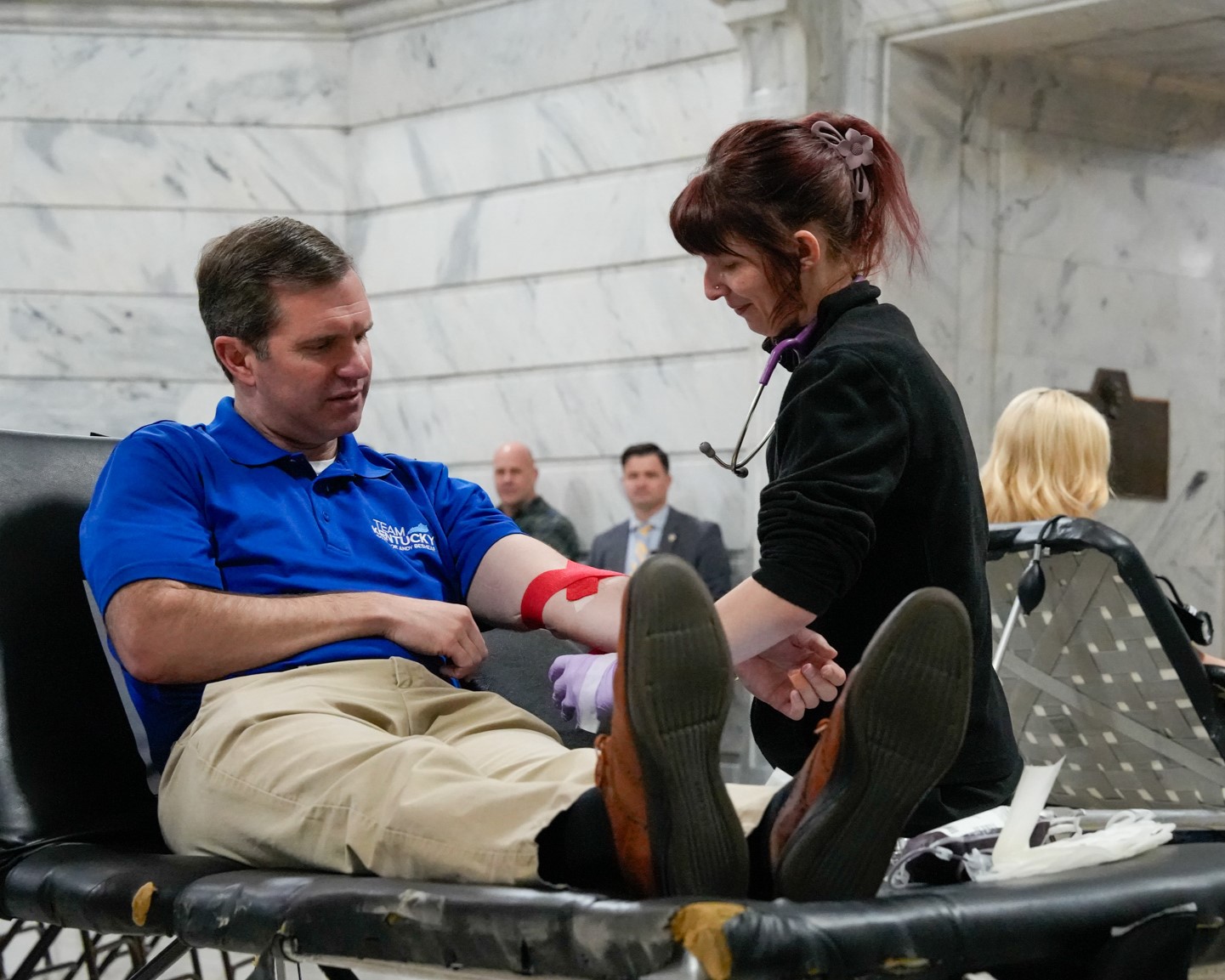A good night's rest is a proven way to improve health and wellness. It’s especially imperative for U.S. service members as they serve and protect America at locations around the world.
 |
| Capt. Kyle Hinzman, commander of the 34th and 905th Military Police Detachments on Fort Knox, secures a new mattress atop a vehicle at the American Red Cross’ Warrior Warehouse on post, Feb. 9. |
For Yvonne Plough, the Red Cross’ Volunteer Engagement Lead at the Warrior Warehouse, seeing soldiers volunteer to help those in need is a tangible way to pay it forward. “[This is] soldiers helping soldiers. We all had a consideration at one point where we needed help, so when we receive help, we should give it forward,” Plough said.
Tempur-Pedic donated the queen-sized mattresses to the American Red Cross to distribute to service members or their families on Fort Knox, and has done so for several years, according to John Matthews, a Red Cross Senior Regional Program Specialist. The Red Cross works with unit chaplains and commanders to nominate enlisted service members E-6 and below in their units to receive a new mattress. Soldiers in the paygrades of E-1 to E-4 are junior enlisted service members, and soldiers in the paygrades of E-5 to E-6 are noncommissioned officers who typically manage junior enlisted service members in day-to-day operations. Each nominated soldier must verify they will not resell the mattresses, nor will they receive more than one mattress per year.
 |
| Soldiers from the 34th and 905th Military Police Detachments at Fort Knox, Ky. haul new mattresses from inside the American Red Cross Warrior Warehouse, Feb. 9. |
A group of eight soldiers from the post’s 34th Military Police Detachment and the 905th Military Working Dog Detachment volunteered to help move the mattresses from inside the warehouse and load them into each waiting vehicle. For 1st Lt. Davis Johns, the Executive Officer for both detachments, the chance to volunteer with the Red Cross helps others understand their profession better.
“I feel like it’s part of our job being military police,” Johns said. “Our job is to protect and serve the people of the installation, and this is just one of the ways we can do that, even if it’s not in a law enforcement capacity.”
The commander of both detachments, Capt. Kyle Hinzman, said many of the detachments’ soldiers have volunteered with previous Red Cross volunteer opportunities on post, and relished the chance to do so again distributing mattresses. He said at least four soldiers in the unit have earned the military’s Outstanding Volunteer Service Medal in the last two years for their volunteerism efforts.
 |
| Soldiers with the 34th and 905th Military Police Detachments at Fort Knox, Ky., load a mattress into a waiting vehicle during a free mattress distribution event at Fort Knox, Feb. 9. |
As she and the other soldiers loaded mattresses into vehicles, Staff Sgt. Joann Cassitty, an operations noncommissioned officer with the 34th MP Detachment, said she and her soldiers are “always ready to help.” She called the American Red Cross’ programs on Fort Knox “amazing,” and wished that every installation had comparable services.
By day’s end, all 80 mattresses were claimed - tied onto vehicle roofs or slid into trunks, much to the visible satisfaction of those receiving one.











